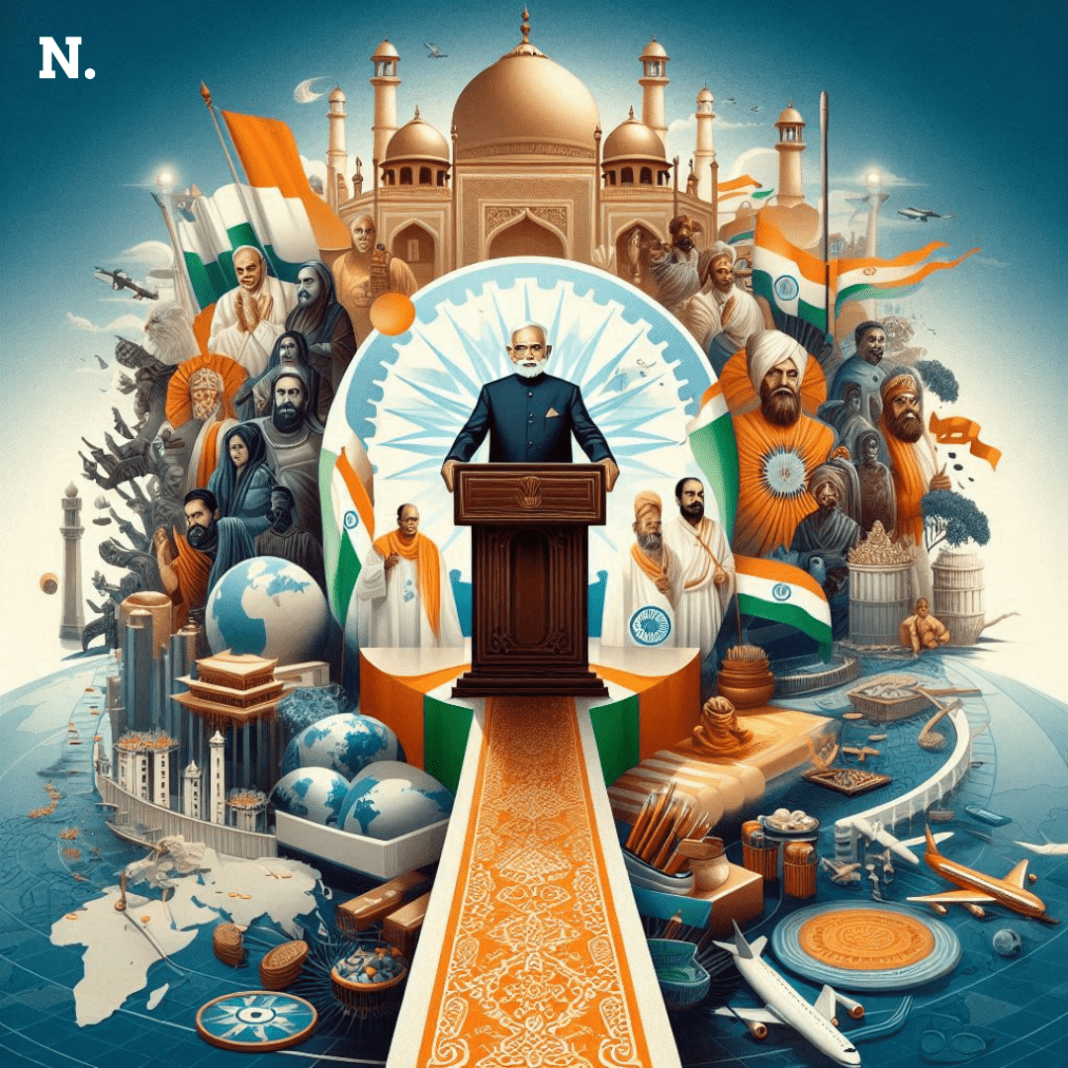Indian Prime Minister Narendra Modi secures a historic third term. However, the victory comes with a significantly reduced majority. This signals a rare electoral setback for the Bharatiya Janata Party (BJP). This outcome prompts reflections on the nature of leadership and governance in India’s vibrant democracy. Amidst these developments, the India-US partnership stands at a critical juncture, navigating a complex geopolitical landscape.
Implications for India-US Relations
Despite Prime Minister Narendra Modi’s diminished electoral mandate, the Biden administration reaffirms its unwavering commitment to the India-US partnership. Recognizing India’s strategic significance in the Indo-Pacific, both nations remain resolute. They aim to address common challenges, notably Chinese assertiveness and regional stability. This steadfast partnership, rooted in shared interests and objectives, underscores a mutual dedication. Both nations aim to bolster cooperation across defense, trade, technology, and counterterrorism domains.
Amid geopolitical uncertainties, the resilience of the India-US partnership shines through. Both nations collaborate to navigate emerging security threats and advance shared global objectives. Beyond bilateral interests, their alliance extends to addressing broader global issues such as climate change and pandemic response. This underscores their collective commitment to promoting peace, stability, and prosperity in the Indo-Pacific and beyond.
India’s Role in the Indo-Pacific Strategy
India’s growing prominence in the Indo-Pacific strategy is underscored by its active participation in initiatives like the Quad and its expanding naval capabilities. As China’s influence looms large in the region, India’s strategic alignment with the US and other like-minded nations becomes increasingly vital in countering coercion and upholding the rules-based order. The Biden administration acknowledges India’s pivotal role in maintaining stability and promoting prosperity in the Indo-Pacific, signaling a deepening of strategic cooperation between the two nations.
Economic Opportunities and Challenges for India
US officials have noticed India’s economic progress under Prime Minister Narendra Modi’s leadership. They observe improvements in the business environment and infrastructure. Modi’s changes have caught the eye of international investors, making India an attractive place to invest. Still, there are worries about policies like wealth redistribution and fiscal responsibility, which might affect how investors see India and its relationship with the US. Making these policies clear and keeping the economy stable is key for India and the US to keep working together on economic growth.
As India becomes a bigger player in the world economy, it’s important to make sure everyone benefits and that the country spends money wisely. Working together, India and the US can sort out these worries and make sure investors feel good about putting their money in India. By doing this, India can keep growing and strengthen its ties with the US.
Domestic Dynamics: Modi’s Personal Leadership and Institutional Strength
Modi’s electoral campaign, marked by a presidential-style approach, raises questions about the balance between individual leadership and institutional integrity in a democratic system. As Modi’s personal appeal remains strong, the BJP grapples with the challenge of maintaining unity and coherence amidst a more fragmented political landscape. However, the democratic process in India continues to thrive, with institutions serving as checks and balances to ensure accountability and transparency in governance.
India’s Electoral Landscape: Lok Sabha 2024 Results and International Reactions
Following the announcement of Lok Sabha 2024 results, the US refrains from commenting on the outcome, respecting India’s democratic process. Meanwhile, leaders from around the world, including Maldives President Muizzu and Italy PM Meloni, extend congratulations to Modi on his third term, highlighting the significance of India’s democratic exercise on the global stage. This reaffirms India’s status as the world’s largest democracy and underscores the importance of upholding democratic values in international relations.
Conclusion
As India embarks on a new political chapter, the India-US relationship faces both challenges and opportunities. Pragmatic engagement, rooted in shared values and strategic imperatives, will be key. It will help navigate the complexities of the Indo-Pacific region and beyond. By upholding democratic principles, India and the US can foster mutual understanding. This partnership can continue to serve as a beacon of stability and progress. It stands as a crucial asset in an increasingly uncertain world. Both nations must seize the opportunities presented by Modi’s third term to deepen cooperation and address shared challenges. This effort is crucial for ensuring a brighter future for their citizens and the wider Indo-Pacific region. It requires proactive engagement and strategic collaboration across various domains.





